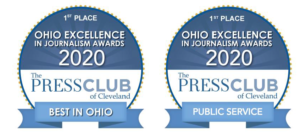What is consumption? How do I define consumption in my life? How does my consumption affect the environment? These are the questions I asked myself before beginning this blog. When I think of consumption, the first thing that comes to mind is food– what I eat and choose not to put into my body. I eat healthy for the most part, and I try to be conscious of where my food comes from, mostly in distance, and who is benefiting from my purchases.
Consumption is not only about food, it’s about how your livable practices are impacting economies, good and bad. It’s about being aware of needs versus wants, and not only preparing for your future, but the future of the world as well. Every thing that we consume, whether it is food, water, air, or oil has a ripple effect on other people, countries, and the environment.
I am generally not one to buy unnecessary things or items I don’t really need right now. For example, my main mode of transportation is my bike, and now that the weather is changing, and the Northeast is seeing record-breaking rainfalls, I decided to buy some top of the line quality raingear, so I can continue using this mode of transportation rather comfortably. My idea of a splurge on any piece of clothing is over $100. I got some amazing (on Sale) Tretorn Kelly rainboots and some waterproof pants for about $100.
My boyfriend is the complete opposite of me. He LOVES his things, and when I point out the questionable purchases he’s made he tells me, “The man who dies with the most toys wins.” Philosophically, I could not disagree with this more. But I remind myself that I can only do my part in this effort to reduce consumption and save the environment. I cannot wait for someone else to do it with me.
Trash, trash, trash…. I see it everywhere! When I’m riding my bike, walking to the train station, or when I peek over at my neighbor’s yard. Every time I am so tempted to just go and pick it up (actually, I have done that on a number of occasions). I’ve always wanted to try this experiment, to collect all of my trash at work and be 100% conscious of what is trash, recyclable, or compostable at home. If I do not get anything else out of this week, one thing I hope to learn is the amount of trash that I alone create. So, in my office I am collecting all of my recyclables and compost material and will take it home with me (probably in a few days, as it’s not too overwhelming now). It will be interesting to see how easy this is accomplished, and how effectively feasible collecting my own trash at work can be to visualize a waste free environment. Perhaps this could turn into an office assignment when I have some preliminary results!
Challenge 3 is about transportation, which is a huge interest to me. As a west-sider who is an employee and student at Case Western Reserve University, I chose to use public transportation when I started my job. A monthly parking spot generally “on-campus” (most of the lots are scattered around University Circle, and you usually have to take a shuttle anyways) costs $90. A monthly bus/transit pass costs $85 for employees and a little less for students. Factor in fuel for your car if you drive to campus and you could be spending upwards $100+ a month in transportation alone. Before I started my job at Case I worked at MetroHealth Hospital on the west side. It was a nice bike commute to work, and the campus at Metro is very bike friendly. I was a little nervous when I changed positions, mostly because of the commute. I’ve been riding my bike and taking the redline for almost 2 years now, and it would be very hard for me to make a change in this method of transportation. It saves me money, stress, and often time, too; it gives me exercise and is a great way to clear your head after a long day at work/school. On the weekends I use my bike to run errands, go to activities/events, or meet up with friends. I know that this is not something that everyone can participate in, but if you can use alternative transportation a few times a day, it really does add up for the environment, your health, and finances. I’ll end this blog with a quote by Alon Raab,
“From my bicycle seat, car drivers usually look miserable. Locked in their fiberglass and steel earth-polluting chariots, they move about in a stupor of noise, speed, and consumption, en route to the next gasoline fix. Their vehicles evoke in me, not the mass advertised images of ease and freedom, but instead mobile coffins, brushing against endless other coffins, as they head towards those cemeteries called parking lots. Seeing bicyclists, the drivers become aware, if only for a second, of that time when they too were able to feel the world, not through a glass cage, but in a direct and particular way.”



Leave a Reply